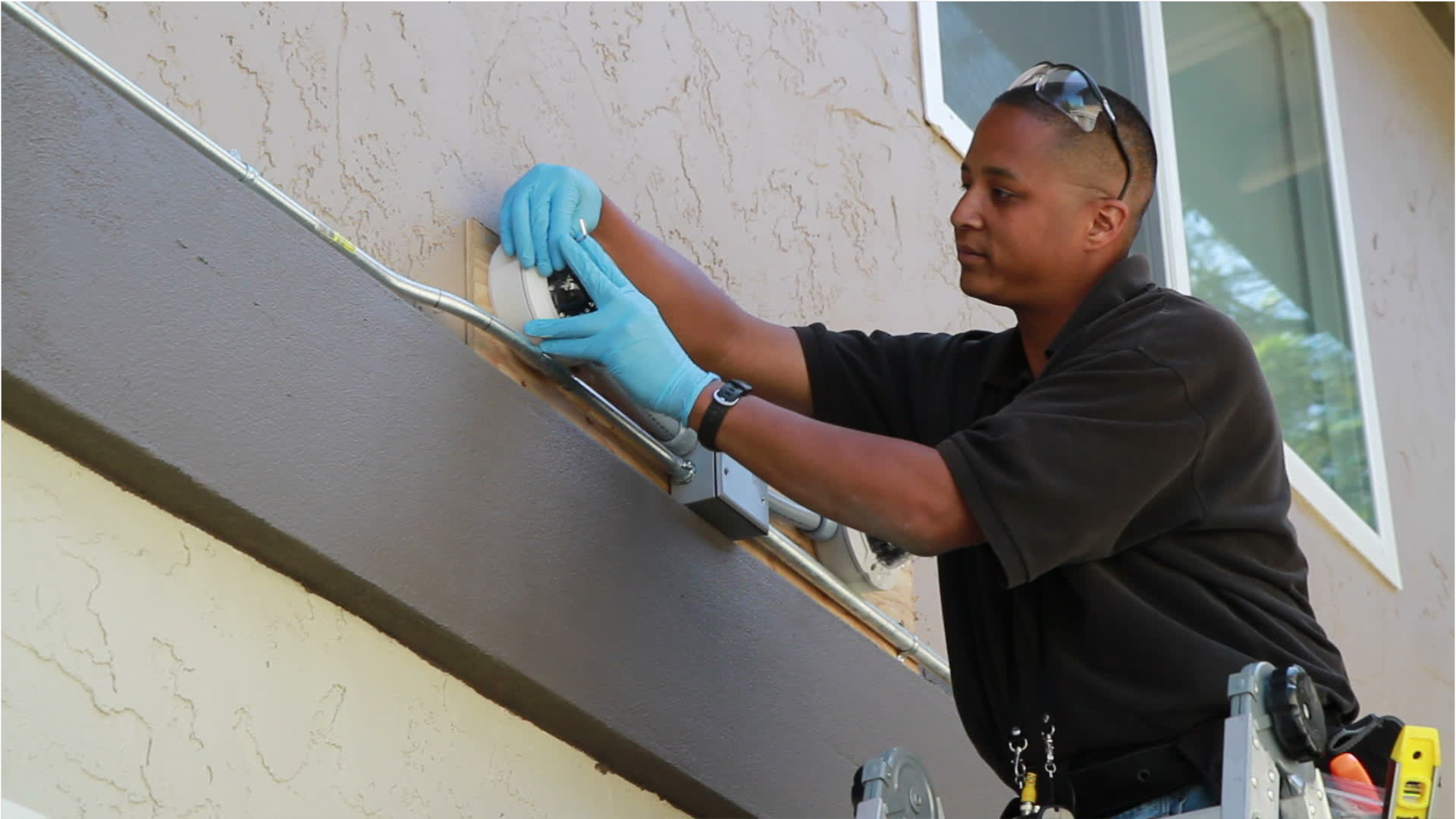Security & Fire Alarm Systems Installers
Alarm Technician, Fire Alarm Technician, Installation Technician, Service Technician
 Select a military branch to see samples.
Select a military branch to see samples.
Electrical Systems; Electrical Systems Apprentice; Electrical Systems Craftsman; Electrical Systems Helper; Electrical Systems Journeyman; Facility Systems Manager; Facility Systems Superintendent; Infrastructure Systems Superintendent
Computer/Detection Systems Repairer
Information System Technician
No similar titles were found.
AN/SIA-127/134 Announcing System Maintenance Technician; Conversion NEC IC Interior Communications Electrician Basic; Interior Communications Electrician (IC) Apprentice Technical Training; Interior Communications Electrician (IC) Combined "A" School; Interior Communications Electrician; Uninterruptible Power Supply (UPS) Maintenance
No similar titles were found.
What they do:
Install, program, maintain, and repair security and fire alarm wiring and equipment. Ensure that work is in accordance with relevant codes.
On the job, you would:
- Install, maintain, or repair security systems, alarm devices, or related equipment, following blueprints of electrical layouts and building plans.
- Mount and fasten control panels, door and window contacts, sensors, or video cameras, and attach electrical and telephone wiring to connect components.
- Demonstrate systems for customers and explain details, such as the causes and consequences of false alarms.
Knowledge
Safety and Government
- public safety and security
Engineering and Technology
- computers and electronics
- building and construction
Business
- customer service
Communications
- telecommunications
Skills
Basic Skills
- talking to others
- thinking about the pros and cons of different ways to solve a problem
Problem Solving
- noticing a problem and figuring out the best way to solve it
Abilities
Hand and Finger Use
- hold or move items with your hands
- keep your arm or hand steady
Verbal
- listen and understand what people say
- communicate by speaking
Ideas and Logic
- notice when problems happen
- order or arrange things
Personality
People interested in this work like activities that include practical, hands-on problems and solutions.
They do well at jobs that need:
- Cautiousness
- Integrity
- Attention to Detail
- Dependability
- Perseverance
- Achievement Orientation
Technology
You might use software like this on the job:
Spreadsheet software
- Microsoft Excel
Presentation software
- Microsoft PowerPoint
Electronic mail software
- Microsoft Outlook
Education
Education: (rated 3 of 5)
certificate after high school or
high school diploma/GED
usually needed
high school diploma/GED
usually needed
Job Outlook
Bright
New job opportunities are very likely in the future.
Explore More
- Electrical & Electronics Installers & Repairers, Transportation Equipment
- Electrical & Electronics Repairers, Commercial & Industrial Equipment
- Electronic Equipment Installers & Repairers, Motor Vehicles
- Lighting Technicians
- Telecommunications Equipment Installers & Repairers
You might like a career in one of these industries:
See more details at O*NET OnLine about Security & Fire Alarm Systems Installers.






